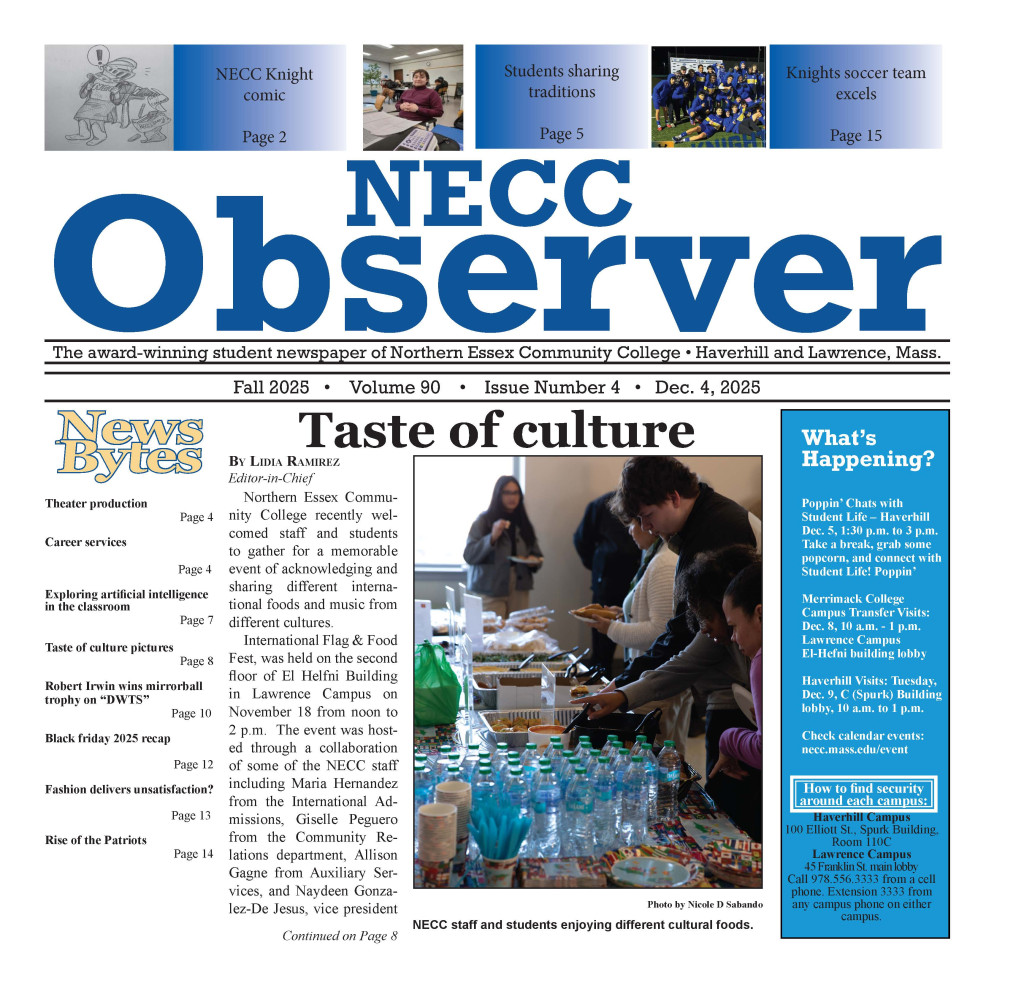The first article I ever wrote was published in the Observer on October 18, 2017. The shortest of my portfolio, it nonetheless banished any doubt in my mind about my path and what I was setting out to accomplish. I want to write, and I want to publish my work. Now, as time crunches in the last weeks of spring, and my classes wrap up for finals, my turn at the helm of this tenured and proud publication also draws to a close. Working as a correspondent, editor, and editor-in-chief have been proving grounds of my practice, and the end result is a portfolio that I am proud of and experiences that will stay with me for the rest of my life. I have found my professional passion in opinion and editorial writing, which I will no doubt pursue wherever I next find myself. To explore and attempt to understand difficult social and political questions has been a driving goal of mine for a long time, but as I have delved into the issues facing our culture and the challenges that must be overcome, there has been a focusing of my explorations. In research, article and presentation I have focused on and addressed severe social ills from demonized masculinity to fake hate crimes that have divided American culture and led to the downward purity spiral that is rooted in a biased and ulteriorly motivated mass media.
As I part from this publication, I leave with this message for all newsprint, be it digital, broadcasted, or old-fashioned paper. The Truth is a loyal mistress, but also unforgiving. For the correspondent, editor, and publication that adheres as closely as possible to what is true and defensible, and makes amends to mistakes and breaches of practice, their credibility and reputations will grow with time. The Truth will prove to be their best defense against inevitable criticism. But for the gatekeeping mass media, wading in scandals and yellow journalism, their lost credibility cannot be regained. Once damned in the public eye, there is little hope for reclamation. One need only look to the social media presences of the old guard firms to see what crop they reap on the web. On CNN’s Youtube page, the very first video presented, as of the date of publication, has seven and a half thousand likes to fourteen thousand dislikes.
But this is not, as these same outlets claim, an attack on the free press. Rather, I firmly believe it to be the end of an era. The practice of Journalism being confined to a handful of multinational firms is being swept away by a tide of citizen journalists unlike the world has ever seen. There are a great many bold individuals the world over who are engaged in journalism at its finest, on the ground with camera in hand. From the Arab Spring, to Brexit, to the Berkeley Riots, it is private individuals sharing their own recorded content to the internet that are documenting and providing commentary on the events that affect themselves and others. The press has been returned to the free market, and publications will once again succeed or fail by their merits. As a result of this, network television channels are suddenly on a level playing field with every and any other publication. The seemingly perpetual downvoting and criticism are not a concerted effort of a single actor or party, but rather a grassroots rebellion against infotainment, stained and sullied that it is.
Even with this industry revolution underway, the state of Journalism can appear quite grim. While this may be so, nothing brings greater reassurance than my work done at the Observer. I have had the pleasure and privilege of working with and reading the contributions of many of my classmates, both editors and correspondents. The Observer has become a crew of vastly different perspectives, a balanced team able to write engaging and pertinent pieces across a wide range of topics. This honest and engaging environment extends beyond the newsroom as well.
Before attending NECC, I wondered what state of free speech I would find on campus. Would the college’s environment be receptive to challenging ideas and complex, difficult conversations? Two years later, I can safely say that NECC has proven not only to respect the principles of freedom of speech and expression, but to hold them in high regard. Events like the recent Speechapalooza reflect this respect for the principles that pushes culture forward, and to participate in and witness the passion and enthusiasm with which the event is received is in no small way refreshing. The academic flame burns bright at this College, and I am glad and proud to have lent my work to it.
What comes next, I am not sure of yet. But these few years have been a growing experience in ways I could never have anticipated. But above all, I am proud to have worked for the Observer, and am glad for my editors, correspondents, and readers. Thank you.



